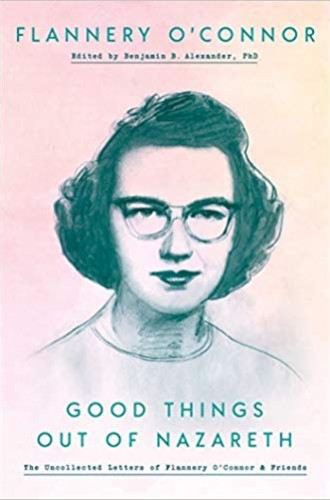Flannery O’Connor’s letters with Caroline Gordon and other friends
Two new collections add to the landmark volume The Habit of Being.
When Flannery O’Connor died in 1964 at age 39, she left behind two collections of short stories (A Good Man Is Hard to Find and Other Stories and Everything That Rises Must Converge) and two novels (Wise Blood and The Violent Bear It Away). At the time of her death, she was developing a voice that had an edge. A rural Southerner, she had learned to dress her sardonic remarks in sly humor. Anytime she dispensed her wisdom through the voices of her characters, she pointed to the truth of a situation as she saw it—and her readers could take it or leave it.
O’Connor also shone a light on the character of redemption in her stories and novels. But in her characteristic picaresque manner, she revealed that grace didn’t come easy. Finding Christ hiding behind every tree in her rural Georgia—the “Christ-haunted South,” as she called it—didn’t always lead to redemption. For example, the swaggering Bible salesman in “Good Country People,” who carries condoms and whiskey in a hollowed-out Bible, is the misfit Messiah who reveals to Joy/Hulga her need to embrace her vulnerability and open herself to love. At the end of “A Good Man Is Hard to Find,” the Misfit carries a revelation about the nature of hypocrisy and truth: “She would’ve been a good woman,” said the Misfit, “if it had been somebody there to shoot her every minute of her life.”
When O’Connor died, readers felt bereft of a voice that spoke hard truths in an unsentimental way. Her fiction presented a landscape shot through with violence and grotesque characters, but she said she wrote in such a way because sometimes you have to shout to proclaim the truth to those who are hard of hearing. Several collections of her essays were published posthumously, and The Complete Stories (1971) won the National Book Award in 1972. But readers continued to thirst for another drink from O’Connor’s well.







